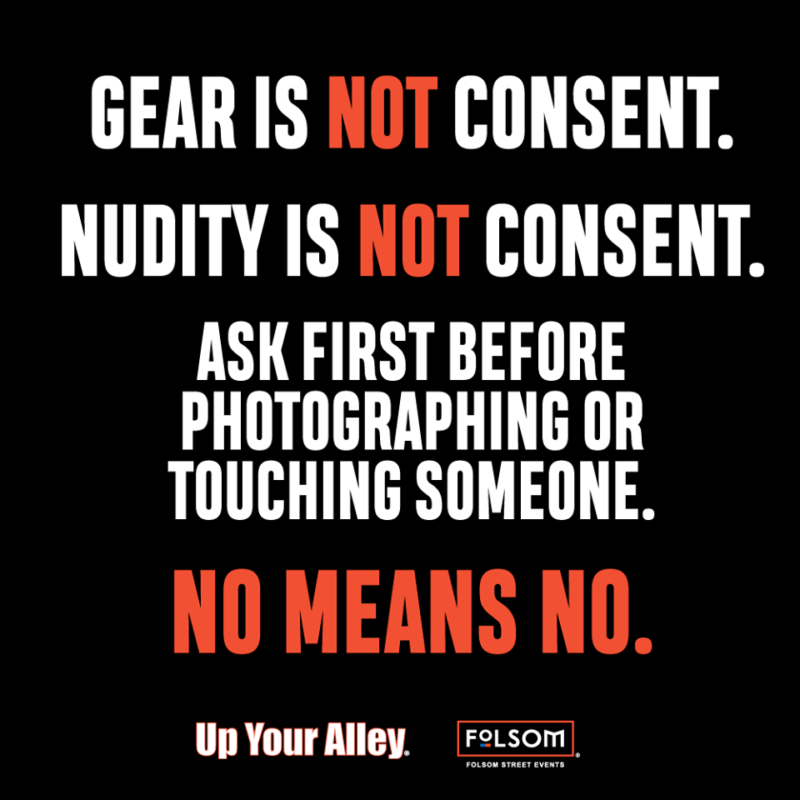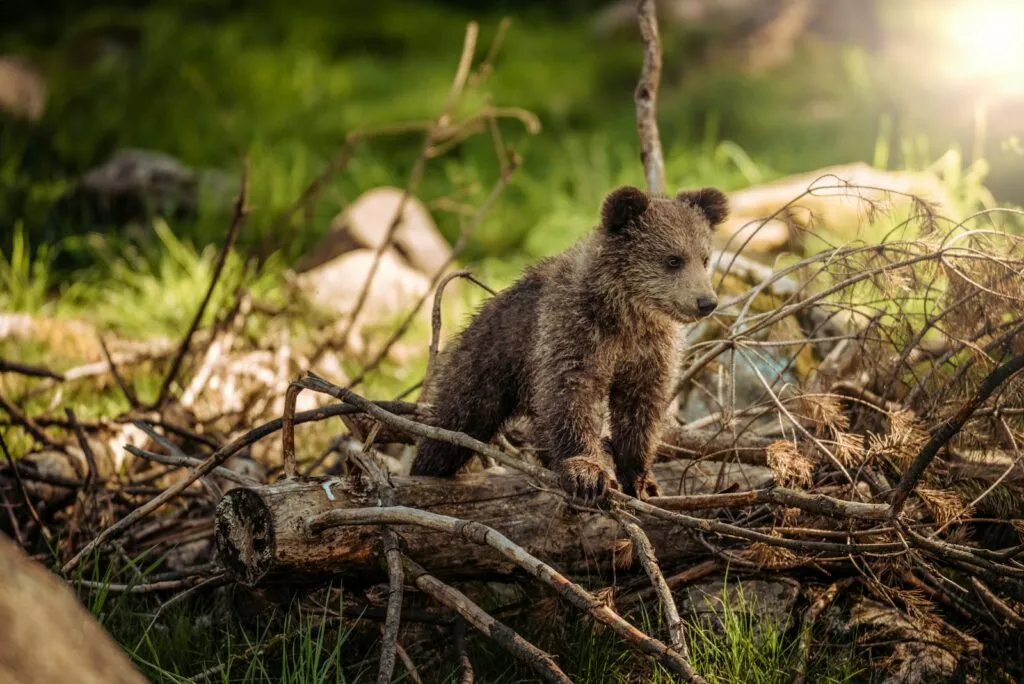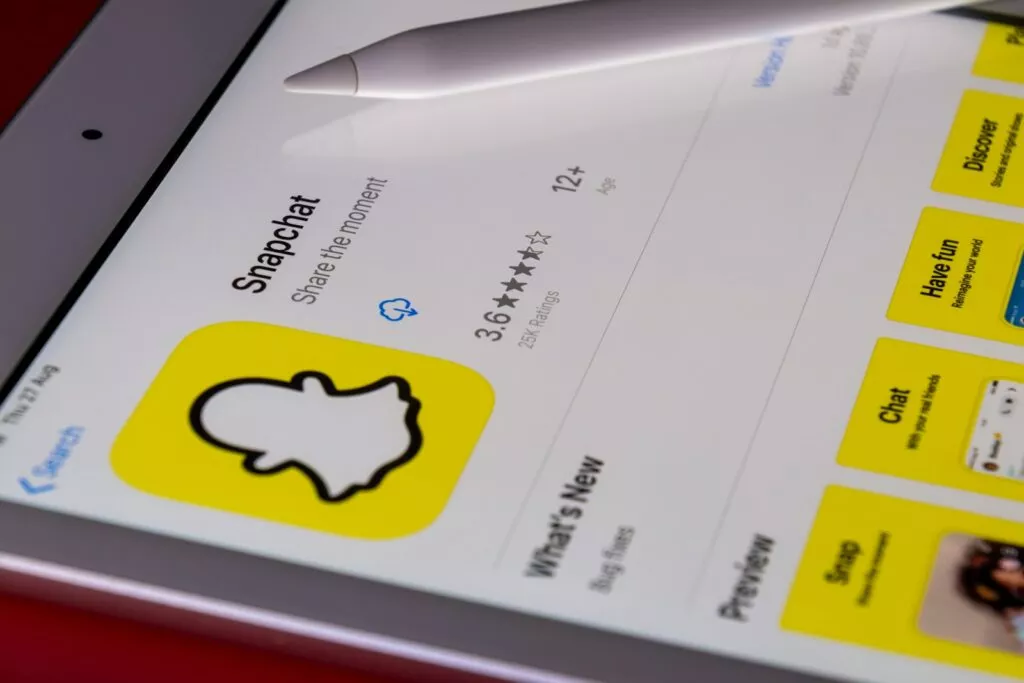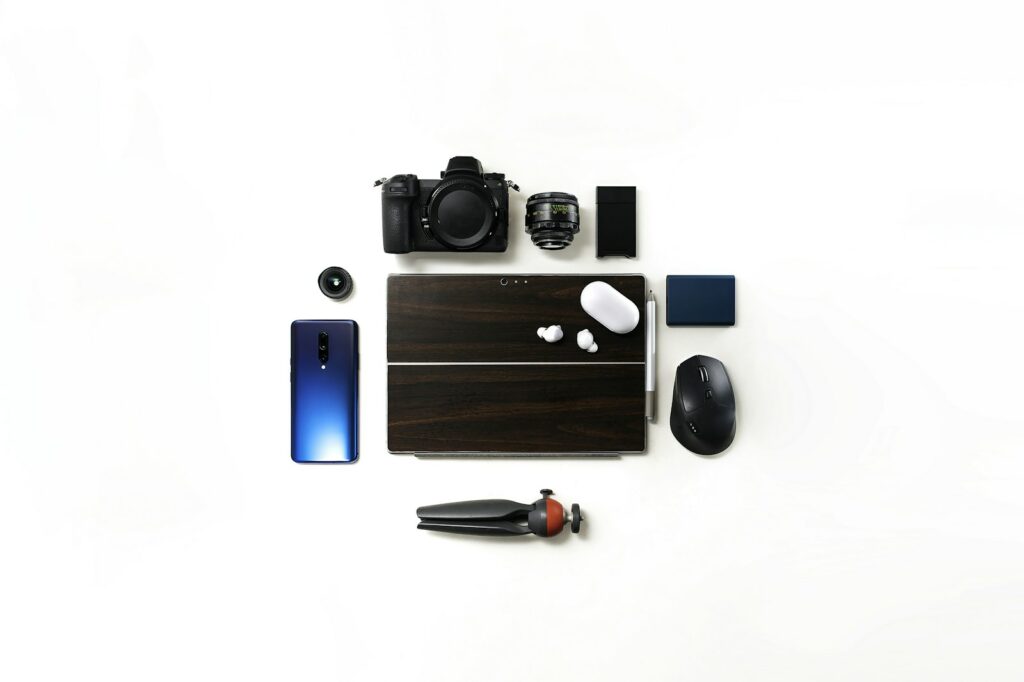San Francisco’s Folsom Street Fair is a well-known BDSM gathering that brings together enthusiasts from across the globe, many of whom arrive decked out in full gear or no clothing whatsoever. A recent sign at the festival is causing a stir, however, as it compares photography without consent to sexual assault in what some are calling an overstretch in the least and deeply offensive in the worst. This sign follows 2016’s much less confrontational though no less controversial “Ask First” campaign that implored street photographers at the Folsom Street Fair to seek permission first before shooting photos.
The sign present at the fair reads: “Gear is not consent. Nudity is not consent. Ask first before photographing or touching someone. No means no.”

San Francisco Chronicle freelance photojournalist Nathaniel Y. Downes was one of the more prominent voices to raise concern about the sign, telling Peta Pixel: “They are saying that taking photos of people in a public place is the same as touching people inappropriately…I commented directly to their Facebook page and after receiving replies to my comment as well as ‘likes’, my comment and the replies have been deleted. I think this kind of campaign is becoming more and more popular. Most older photographers know our rights… And clearly, the organizers do as well (or they would have chosen dialog over suppression). But younger photographers and younger PR folks may not.”
One of the main issues people see with the sign is that the Folsom Street Fair takes place in public and is considered a public event. Downes says that expectations of privacy while attending a public event could be extended to other events that are not the same as the Folsom Street Fair, such as at political rallies.
“The state of dress/undress is not a part of the first amendment…This is why it is an important story. It is a slippery slope. If one fair says you cannot take photos here, then later a political rally/protest asks for the same considerations,” Downes told Peta Pixel.
Further, he chaffed at the comparison of photography to sexual assault.
The Folsom Street Fair organizing staff Executive Director Patrick Finger responded to the criticisms by highlighting that, “There are some attendees who prefer to not be the focus of a photograph,” and that obtaining permission was a simple matter of showing “respect.”





11 Comments
The sign is utter nonsense. People going around nude in public are concerned about being photographed? Who are they kidding?
Ok, first of all, is it illegal to take a picture of someone in a public place without their consent? If yes then hey I can see it from the BDSM communities point of view, but if it is not then hey you can’t have your cake and whip it too, (with cream whip cream get it, ha I spank me). Seriously that is like saying hey I am going around nude in pubic I mean public but DO NOT look at me.
In a public place a person has no expectation of privacy. There are some instances you may want to ask permission, such as asking someone if they would pose for you. Otherwise, in candid shots, if they don’t want nude pictures of themselves taken, they need to clothe themselves.
If they don’t want to be photographed, and they know there will be photographers there, the choice is theirs as to whether or not they attend.
It’s like saying you want to go to Niagara Falls but you don’t want to get wet…
Simple! you in a large group in public space – dancing, singing, frolicking – clothed or un-clothed. I with my camera take pictures within my rights. I cannot ask everyone around you for permission – as along with you on the street there will be other folks – I cannot isolate you.
I think the BDSM people don’t know the difference between public and private space. I have encountered this lack of understanding before while shooting at public sporting events. Coaches and parents have approached me saying I need permission. When I point out we are at a public park they mumble something along the same lines of “respect.” For that matter, I have seen many people gawking at accident scenes with victims being treated on scene by medics. What about their privacy. I am catching a not so faint wiff of hypocrisy here.
Street performers in NOLA have a different view of being photographed and I believe the city protects performers in public view from being photographed without permission. The Music and Culture Coalition of New Orleans (MACCONA) protects them and do the local police. Often they will refuse when asked.
I am from New Zealand and therefore do not know your laws so apologies if I get it wrong or offend anyone. Surely the issue is not taking the photograph but what is done with the image after it is taken . If it is of one specific person and to be used for monetary gain or general public view , i.e. electronic media then I would suggest permission is asked for. If it is of a group , street scene or to be used for non public monetary gain , i.e. I belong to a camera club and show images in competition in the club and holiday photograph, then I suggest no permission is required. Always ask permission if the photograph is taken a private situation . Thank you
“obtaining permission was a simple matter of showing ‘respect.’ ” Yet showing up without clothing (clothing optional) is showing respect for themselves? How can anyone possibly expect respect from others if they have no respect for themselves?!
When I was there with my camera some people would turn or walk away and others would smile and almost pose. There was enough going on that it was fairly easy to avoid photographing those who obviously were uncomfortable. Still, only commercial uses require permission and it’s troubling that so many people don’t understand that. Hopefully, it won’t reach the point where the law changes so that releases are always required.
It’s very sad to see someone trying to link touching(assault) with photography(expression/art) in the same sentence. If you’re in public, you are captured in surveillance videos all most all of the time. Yet you don’t fight that, why? Just so you understand, in the United States photography is actually protected under the 1st Amendment. Good luck trying to amend the constitution over photography and freedom of the press. Which is a fundamental founding right in this country.